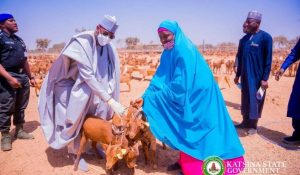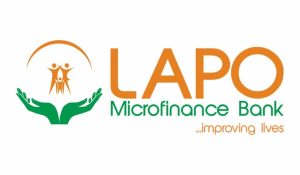
BATN recounts contributions to Nigeria's economy at two-decade anniversary
The leadership of British American Tobacco Nigeria Limited (BATN), counted and named one by one, the brand’s contributions to the Nigerian economy at a press conference to mark its two decades of operation in Nigeria.
The media conference, which took place recently at, The Rising Sun, Ikoyi, Lagos, had the Managing Director Nigeria and Cluster Manager West and Central Africa of the company, Mr. Yarub Al-Bahrani, Advisory Board chairman, Kola Karim, Director of External Affairs, Odiri Erewa-Meggison, and the moderator at the event, Margaret Otaru in attendance.
In his welcome address, Kola Karim, Chairman, Advisory Board, BATN, said the company’s milestone signified a landmark event for its inward investment in the Nigerian landscape and that the company committed itself to using the country as a hub for manufacturing, production, and exports, thereby significantly contributing to its economy.
“The investment is creating additional jobs, industrial support, and payment of taxes, as well as providing socioeconomic support through its various Corporate Social Responsibility (CSR) initiatives,” he said.
While taking the journalists on a journey down memory lane at the press conference, Al-Bahrani, the managing director, said the Ibadan factory, which was established in 2003 with investments worth over $185 million, has been a cornerstone of BAT Nigeria’s operations in West and Central Africa, thereby enabling exports to 11 countries in the West and Central Africa region and recently exporting to the United States of America, while consistently upholding the highest standards in safety and environmental sustainability.
He added that beyond its commercial success, the BAT factory in Ibadan has also been a champion of environmental sustainability, saying that the factory has implemented a comprehensive environmental management system, incorporating stringent measures to reducing its carbon footprint. These efforts have resulted in significant reductions in energy consumption, water usage, and waste generation.
He explained that the factory has gained recognition for its commitment to environmental sustainability, highlighted by its recent setup of a 1.4MWP grid-tied solar panel system scheduled to be unveiled on February 6, 2024. In addition, its active advocacy for water stewardship has led to the attainment of various certifications, including the prestigious ‘Alliance for Water Stewardship’ (AWS) core certification.
The managing director said that in addition to its environmental initiatives, the Ibadan factory has also made significant contributions to the local community through the creation of direct and indirect employment opportunities for thousands of Nigerians from diverse backgrounds since its inception.
He added that the company recently started exporting to the United States of America, thereby returning hard foreign exchange worth millions of dollars to the Nigerian economy as he assured that the company will continue to invest in Nigeria’s ecosystem, the people, and the environment through its various Environmental, Social, and Governance (ESG) practices.
“Two decades ago, we embarked on a journey to establish a world-class manufacturing facility in Nigeria, and today, we are proud to celebrate the Ibadan factory as a shining example of our commitment to excellence and sustainability in Nigeria.
“The factory has played a pivotal role in our success, contributing significantly to the Nigerian economy, creating employment opportunities across the value chain, and promoting environmental stewardship.
“For the Nigerian economy, there are tough choices but going forward, the country would reap the rewards as we believe in the significant potential of Nigeria.
“Economically, things would get better and we would continue to invest and partner with the government while they continue to invest in business friendly policies,” he said.
Al-Bahrani said the company beyond its commercial success had been a champion of environmental sustainability.
According to him, the factory has implemented a comprehensive environmental management system, incorporating stringent measures to reducing its carbon footprint.
These efforts, he noted, have resulted in significant reductions in energy consumption, water usage, and waste generation.
“The Factory has gained recognition for its commitment to environmental sustainability, highlighted by its recent setup of a 1.4MWP grid-tied solar panel system







